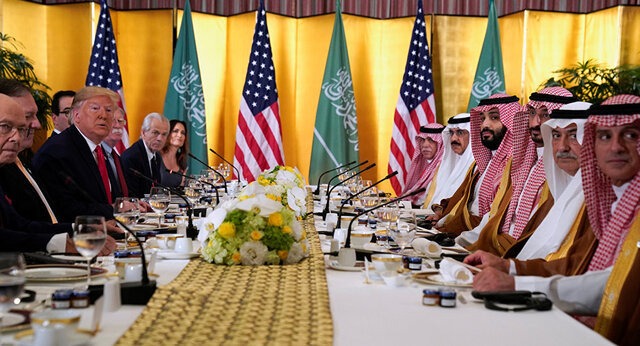In an interview with the website of the Strategic Council on Foreign Relations, Sajjad Mohseni noted that relations between the United States and Saudi Arabia have been strategic for both sides since the formation of Saudi Arabia on September 23, 1932. “Saudi Arabia considers the United States the most important and powerful partner. The United States too considers Saudi Arabia its most important ally in the Middle East. Thus, any change in the United States could have a “butterfly effect” on Riyadh’s policies.
He said that the election, as one of the most important events in the United States, has always been of interest to the Saudi government, adding: “This rule also applies to all seven Saudi kings, including King Salman. The government of King Salman has also experienced previous the behaviors of the White House statesmen; So what stands out in the eyes of King Salman and Mohammed bin Salman in the first place is the foreign policy model of the future president of the United States, who can either lean toward the Obama administration model or act on the Trump administration’s foreign policy model.
Obama’s Role Model in Relations with Saudi Arabia
Explaining the characteristics of Obama’s model in foreign policy, the Middle East affairs expert said the Obama administration’s role model is to get Saudi Arabia off the top of the list of US allies or at least to reduce the importance of Riyadh to the United States; adopt a collaborative approach to governments opposed to Saudi Arabia, such as the Islamic Republic of Iran; and the importance of the human rights field, and entry into the black box of the government and put pressure on the Saudi government to provide civil and political freedoms.
Mohseni explained: “Naturally, such an approach will also affect the direction of US foreign policy regarding Saudi Arabia’s attack on Yemen, its interference in Libya and its pressure on the smaller governments in the Peninsula. This is a pattern that can be reinforced by the advent of Biden. However, it may be said that Biden will not adopt an idealistic approach like Obama.
Trump’s Role Model in Relations with Saudi Arabia
He also spoke about the characteristics of the Trump model in the field of foreign relations, which could affect Saudi Arabia: “On the opposite side of the Obama model, there is a Trump model that picks Saudi Arabia the first foreign country to be visited by Trump. He pays attention to Riyadh in terms of words and logistical support, although he has a businesslike approach on the issue, but it is also acceptable to the Saudi government and puts pressure on opponents of Saudi Arabia at the regional level. Meanwhile, he would not interfere in the domestic politics. Naturally, the degree of acceptability of such a person compared to Obama’s foreign policy mode vis-à-vis Riyadh is higher.
Saudi Efforts to Maintain Relations with US in Any Form
According to the expert, anyone who comes to power in the upcoming US general election will look to Saudi Arabia in a strategic way, but will naturally be free on approach and tactic. Saudi Arabia has also acknowledged that there is an urgent need for US support in the global power structure, so it is trying to maintain its ties with Washington under any situation.
Saudi Concerns over US Election Results
Regarding Saudi Arabia’s challenges and concerns about the upcoming US elections, Mohseni said: “The first concern is how the US government will interact with the Islamic Republic of Iran. The Islamic Republic of Iran considers its most important enemy to be the United States and not Saudi Arabia; On the other hand, Saudi Arabia’s considers Iran not a rival but number one enemy; so the future US government’s engagement with Iran has always been one of Saudi’s hallmarks in supporting or not supporting a particular candidate.
He called the Saudi government’s second concern “the failure of the United States to get involved in Saudi Arabia’s internal affairs” and added that “Saudi Arabia does not have a good position in the field of human rights among the countries in the region. Despite some of the social freedoms offered by the Salman government, political space has remained extremely limited and under control.”
Mohseni said the third concern of Saudi officials seemed to be “the maximum expectation from the United States to support Saudi foreign policy,” adding that Saudi Arabia expects the next US administration to change or maintain the regional balance in favor of Riyadh. Maintaining Saudi Arabia’s position in the Arab world and being at the top of the regional power pyramid largely depends on the US support for Saudis. Meantime, the Saudi government seeks to gain this support even at the cost of unbalanced economic dependence on the United States.
Saudi Efforts to Reduce Dependence on US by Getting Closer to China, Russia
At the same time, he stressed that Saudi Arabia under the Salman government has tried to follow the path of relative independence from the United States in order to minimize the implications of the US policy on the country. Attempts to strike a balance in foreign policy by bringing China and Russia into relations seem to be the beginning of a process that depends on many other variables, but the United States still has a key role to play in the thinking of Saudi political elites.










0 Comments